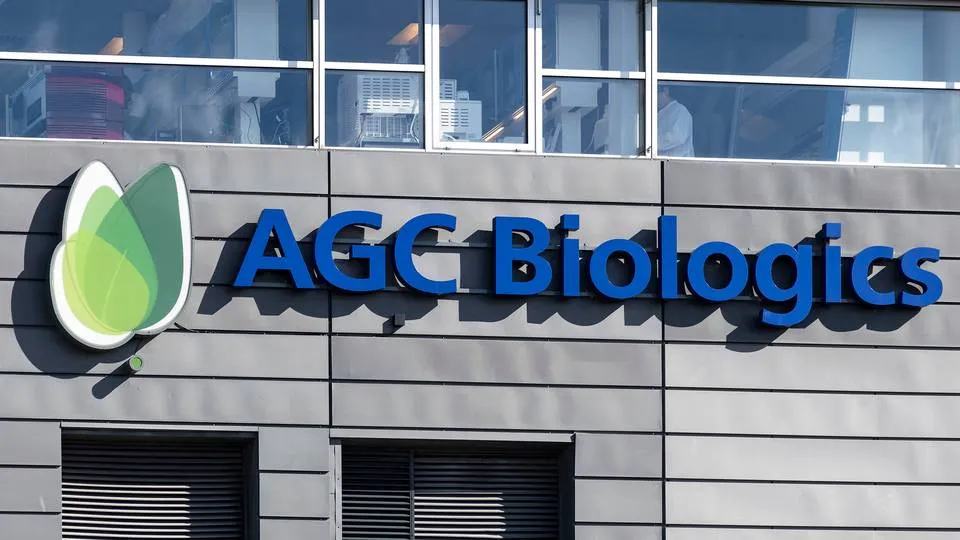
AGC Biologics’ Heidelberg Facility to Manufacture Drug Substance for Phase II Trials of Valneva’s Four-Valent Shigella Vaccine Candidate
AGC Biologics, a global contract development and manufacturing organization (CDMO), announced a new partnership with specialty vaccine company Valneva SE (Nasdaq: VALN; Euronext Paris: VLA) to support the clinical development of a four-valent bioconjugate vaccine against Shigella infections. Under this agreement, AGC Biologics’ state-of-the-art microbial facility in Heidelberg, Germany, will produce the drug substance required for Phase II clinical trials.
The investigational vaccine, which targets Shigella-induced shigellosis—a major cause of pediatric diarrheal disease and mortality worldwide—is being developed under license from LimmaTech Biologics AG. Valneva holds exclusive rights to the vaccine candidate following its licensing agreement with LimmaTech, which had previously worked with AGC Biologics to develop the early-stage manufacturing processes for first-in-human trials.
Supporting the Next Phase of Development
This latest collaboration builds on the earlier success of AGC Biologics and LimmaTech, who partnered to establish Good Manufacturing Practice (GMP)-compliant processes and quality control systems for the vaccine candidate’s complex protein-polysaccharide conjugates. These bioconjugates form the basis of the multivalent vaccine’s antigenic components, and their successful production under GMP standards was crucial for initiating early clinical evaluation.
With Phase I development milestones now achieved, the current focus is on scaling production to support two key Phase II studies. In April 2024, Valneva and LimmaTech launched a Phase II study in infants, a population most affected by Shigella infections. A second study, a Phase IIb Controlled Human Infection Model (CHIM) trial, is expected to begin in November 2024. These trials are designed to evaluate both the safety and immunogenicity of the vaccine in target populations, as well as its potential for broader efficacy.
AGC Biologics’ Heidelberg site will play a central role in ensuring high-quality drug substance supply to support both trials. The site’s proven track record of navigating complex biologics through early and late clinical phases was a key factor in Valneva’s selection of AGC Biologics as its manufacturing partner.
Shigellosis: A Global Health Priority
Shigellosis remains one of the most urgent unmet public health challenges, particularly in low- and middle-income countries. According to estimates from the World Health Organization and other global health bodies, Shigella causes approximately 165 million infections annually. Alarmingly, over 62 million of these infections occur in children under the age of five, making Shigella the second-leading bacterial cause of diarrheal death in this vulnerable population.
Infections are typically spread via contaminated food or water and through person-to-person contact, particularly in environments with poor sanitation and hygiene infrastructure. Symptoms range from moderate diarrhea to life-threatening dehydration and dysentery. With increasing antibiotic resistance among Shigella strains, treatment options are becoming more limited—underscoring the urgent need for effective vaccines that can provide durable protection and reduce dependence on antibiotics.
Valneva’s tetravalent vaccine aims to protect against the four most prevalent Shigella serotypes associated with disease burden worldwide. The bioconjugate design of the vaccine offers the potential to induce robust immune responses across these multiple strains—an approach that could dramatically reduce morbidity and mortality associated with the pathogen.

AGC Biologics Heidelberg: A Center of Excellence in Microbial Manufacturing
Located in one of Germany’s leading biotech hubs, AGC Biologics’ Heidelberg facility is uniquely equipped to support the development and manufacturing of microbial-based biologics, including vaccines, therapeutic proteins, and nucleic acid-based modalities. The site operates multiple current Good Manufacturing Practice (cGMP)-compliant microbial fermentation lines and has been producing biologics for more than 40 years.
Its capabilities extend across the full product lifecycle—from early-stage development through commercial-scale manufacturing. The facility offers:
- Strain development with freedom to operate: Leveraging a robust toolbox for E. coli and other microbial systems, the site enables flexible strain optimization while mitigating intellectual property constraints.
- Expertise in bacterial and yeast expression systems: AGC’s team has extensive experience working with a range of host organisms, offering clients custom solutions tailored to their product characteristics.
- Proprietary platforms for plasmid DNA (pDNA) and messenger RNA (mRNA): These capabilities allow for the production of advanced therapeutic modalities that are increasingly in demand, including gene therapies and mRNA-based vaccines.
- Late-phase and commercial-scale fermentation: The site houses large-scale fermentation and protein refolding equipment suitable for process intensification, scale-up, and tech transfer projects.
- Rapid project onboarding and acceleration: With expertise in supporting fast-track development programs, the Heidelberg team can streamline manufacturing timelines and ensure continuity between clinical phases.
According to Dieter Kramer, Senior Vice President and General Manager of AGC Biologics Heidelberg, the facility’s capabilities are particularly well suited for programs like Valneva’s multivalent Shigella vaccine, which requires precise handling of complex biologic components.
“Our site’s unique ability to handle complex molecules and multi-valent assets can help this potentially life-saving program reach its next clinical milestone,” Kramer said. “We appreciate Valneva entrusting our team of experts with this challenge and are honored to contribute to efforts that aim to prevent millions of deadly infections in the future.”
Building on a Legacy of Innovation and Partnership
This collaboration further strengthens AGC Biologics’ presence as a trusted CDMO partner in the vaccine development space. The company has supported numerous clients in advancing vaccines from concept to clinic, including work on COVID-19 vaccine candidates, viral vector-based products, and novel recombinant protein vaccines.
AGC’s global network spans facilities in the United States, Europe, and Asia, offering cross-site technical harmonization and regulatory support for clients aiming to scale their products worldwide. The Heidelberg site, in particular, serves as a hub for microbial fermentation excellence, complementing the company’s mammalian cell and cell therapy manufacturing capabilities at other locations.
Meanwhile, Valneva continues to strengthen its position as a leading vaccine developer with a portfolio that includes approved products such as IXIARO® for Japanese encephalitis and Dukoral® for cholera and traveler’s diarrhea, as well as a number of promising candidates in clinical stages—including vaccines for chikungunya, Lyme disease, and now, Shigella.
The success of the Shigella vaccine program could represent a major breakthrough for global child health, especially in regions where access to safe water and sanitation is limited. Through this agreement, AGC Biologics and Valneva are not only advancing scientific innovation but also taking meaningful steps toward addressing a critical public health gap.





